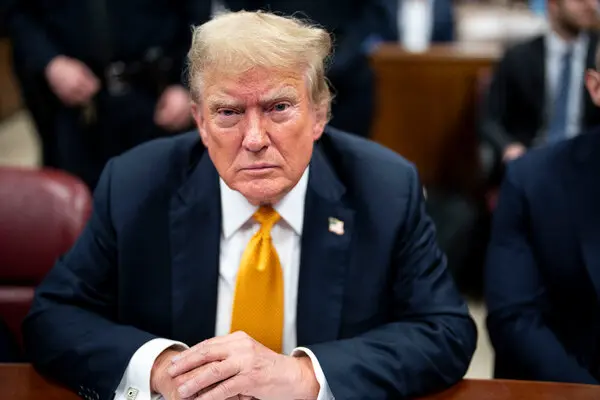The role of the President of the United States as Commander in Chief of the armed forces is one of the most critical responsibilities in the nation’s governance.
This position demands unwavering integrity, sound judgment, and the ability to command respect both domestically and internationally. The recent felony conviction of former President Donald Trump raises profound concerns about his fitness to assume such a pivotal role in the future.
Legal and Ethical Considerations
A felony conviction inherently undermines the moral and ethical authority required to lead America’s military. The Commander in Chief must be beyond reproach, serving as a paragon of virtue and lawful conduct.
A convicted felon, by definition, has violated the legal and ethical standards that underpin American society. This breach of trust is fundamentally at odds with the principles of justice and responsibility that the military upholds.
Moreover, the legal ramifications of a felony conviction include restrictions that can impede the ability to effectively fulfill the duties of the presidency.
These limitations can range from issues of credibility to potential restrictions on travel, depending on the nature of the conviction. Such constraints could severely hamper the operational capabilities and international engagements of a Commander in Chief.

Command and Respect
The effective leadership of the armed forces relies heavily on the respect and trust of military personnel. A Commander in Chief with a felony conviction may struggle to command the necessary respect from the rank and file, as well as from senior military leaders.
This erosion of trust can lead to a breakdown in the chain of command, potentially compromising the effectiveness and morale of the military.
Additionally, the international perception of the United States’ leadership is crucial in maintaining alliances and deterring adversaries. A Commander in Chief with a felony conviction may be perceived as weakened or compromised, undermining the United States’ standing on the global stage.
This perception can embolden adversaries and create uncertainty among allies, jeopardizing national security and diplomatic relations.
Related Articles
- Ackman’s Ascendancy: A Wealth Surge and Resounding Influence
- Sweltering Heat Wave Sweeps Across Texas, California, Arizona, and Nevada
Precedent and Integrity
Setting a precedent that allows a convicted felon to serve as Commander in Chief would have far-reaching implications for the integrity of the office. It would signal a troubling shift away from the high standards of conduct historically associated with the presidency.
The foundational principles of democracy, including accountability and the rule of law, would be called into question if a felon were permitted to hold the highest office in the land.
The United States has long prided itself on being a beacon of democracy and justice. Allowing a convicted felon to lead the military would undermine these values and diminish the country’s moral authority. It is imperative that the standards for presidential eligibility reflect the gravity and significance of the role, particularly in its capacity as Commander in Chief.
